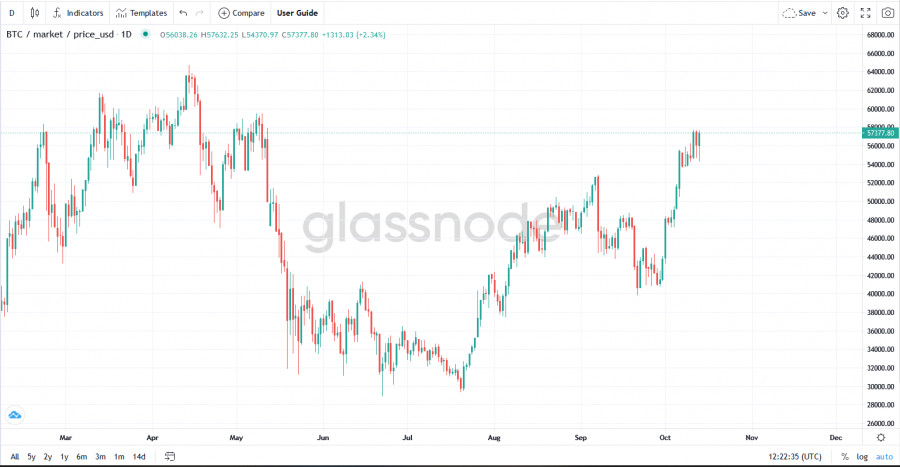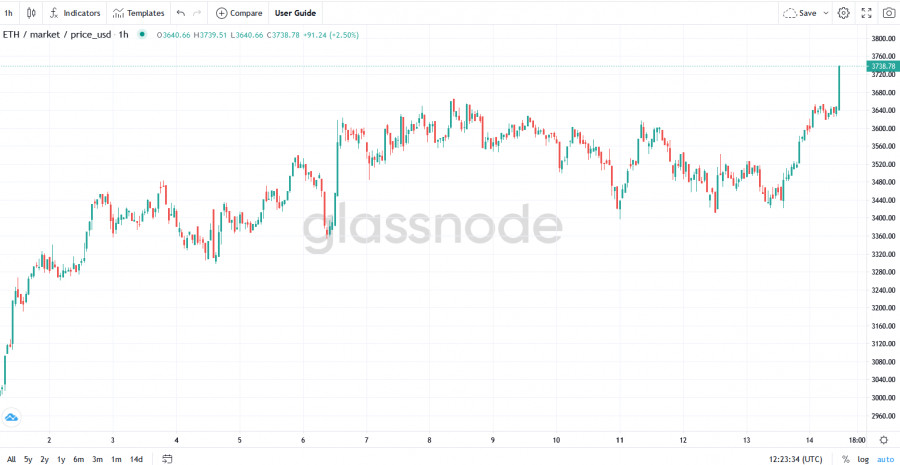Bitcoin stopped at $58,000, and ether, breaking above $3,600, is testing the $3,700 level. Other altcoins have also seriously gained weight over the past day. But before talking in detail about the technical picture, special attention today was drawn to the interview of the Bank of England Deputy Governor for Financial Stability John Cunliffe.

Cunliffe noted that cryptocurrencies can cause a global financial crisis if strict rules for their regulation are not introduced. Judging by the fact that the UK has been actively struggling with digital currencies lately, such statements did not cause much surprise among the cryptocurrency community. In his speech, Cunliffe compared the growth rate of the crypto-asset market from $16 billion five years ago to $2.3 trillion today with the $1.2 trillion subprime mortgage market in 2008. "When something in the financial system grows very fast and grows mainly in an unregulated space, financial stability authorities should sit down and pay attention to it," he said.
Cunliffe acknowledged that governments and regulators should be careful not to overreact to newly emerging trends in the digital sphere, as, in his opinion, crypto technologies open up the prospect for radical improvements in the financial services sector. He also noted that currently, the risks to the financial stability of the UK and other countries remain limited, but the current use and distribution of crypto assets in the future will pose a more serious problem for financial stability, since most of them have no intrinsic value and are subject to ultra-high volatility.
It is difficult to disagree with him since the sharp rise of bitcoin in the $60,000 area at the beginning of the year, and then a hard landing in the $30,000 area in May, brought enormous losses to those who traded with leverage or were reckless about investing in this asset class. Even now, when bitcoin has returned to the level of $58,000, everyone is also subject to a variety of external factors: from the comments of Tesla CEO Elon Musk to regulatory repressive measures by the Chinese government.
According to the representative of the Bank of England, the connection of the crypto world to the traditional financial system carries a lot of risks, since all this happens in an unregulated space. By the way, the Governor of the Bank of England, Andrew Bailey, holds about the same position. Back in May, he warned investors that they should not invest all their money in cryptocurrency, since there is a fairly high option of their complete loss.

As for the technical picture of bitcoin, it has not changed much.
The bulls have once again approached a fairly large resistance of $58,000 and are testing it for strength. A breakout of this range will open a direct road for the trading instrument to the highs of $62,200 and $64,700. If buyers fail once again and fail to break above $58,000, the pressure on bitcoin will return and in this case, they will have to defend the support of $54,444, the breakout of which will quickly dump BTC at $51,000 and $47,600.

As for the technical picture of the ether, there was a breakout of a rather large level.
The chart clearly shows how going beyond the $3,600 resistance was perceived as a signal for active purchases of ether, which persists at the time of writing this review. The nearest target in this case for the bulls will be the resistance of $3,880, the breakout of which will provide an opportunity for the test of $4,124. It is possible to talk about the return of pressure on ETH only after the unsuccessful defense of the $3,600 mark, which must necessarily take place in the near future before a major campaign of ether in the area of annual highs.
The material has been provided by InstaForex Company - www.instaforex.com